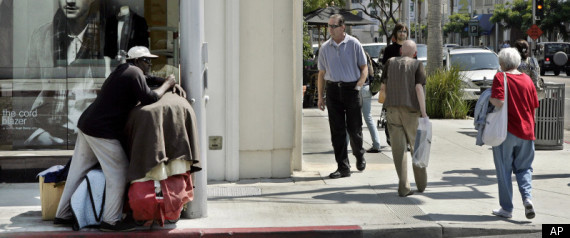
"Politics and Economics: The 101 Courses You Wish You Had"
***
The study out of the International Monetary Fundfound that greater income equality positively correlates with stronger economic growth. Released in September, the study more specifically concluded that a 10 percent decrease in inequality increased the expected duration of economic growth by 50 percent.
The IMF paper, which studied a sample of countries around the world between 1950 and 2006, found that in countries with more income inequality, such as Jordan and Cameroon, the economy more frequently plunged into deeper recessions, while economic growth lasted much longer in more equal societies.
Indeed, greater levels of income equality corresponded more strongly to sustained economic growth than other economic factors, including lower debt levels, according to the report. "Sustainable economic reform," the authors write, "is possible only when its benefits are widely shared." The United States
Income inequality has grown in the United States over the past four decades and now more closely compares to the income distributions of Russia and Iran than many other developed economies.
And some U.S. corporations are coming to grips with providing for a society with more rich and poor, and fewer middle class. The household-goods manufacturer Procter & Gamble, for example, has reduced its emphasis on middle-market items, instead focusing on developing luxury and bargain items, according to The Wall Street Journal.
Yet mushrooming income inequality isn't exclusive to the United States, rising 0.3 percent every year between the mid-1980s and mid-2000s in OECD countries.
Some economists have attributed stagnant wages for most Americans over the past four decades in part to growing inequality, as the rich have mostly benefitted from the country's recent economic gains.
And so long as Americans don't spend like before, the economy may not be able to fully recover. Historically the backbone of the U.S. economy, the eroding middle class has created an anemic economy, Berkeley labor economist Robert Reich recently wrote. He emphasized that the spending of the richest people alone is not enough to lead to "a virtuous cycle of more jobs and higher living standards."
Nobel Prize-winning economist Joseph Stiglitz agrees. "An economy in which most citizens are doing worse year after year -- an economy like America's -- is not likely to do well over the long haul," he recently wrote in Vanity Fair.
The widening gap between the wealthy and everyone else in the United States may be hindering a broader economic recovery, according to a new study.